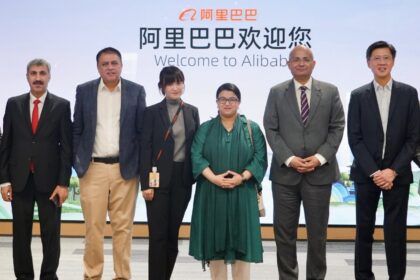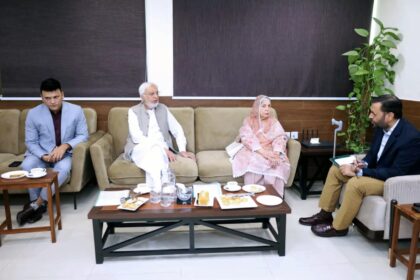The China-Pakistan Study Centre at the Institute of Strategic Studies Islamabad recently held a seminar examining the significance of the Shanghai Cooperation Organization’s “China Year 2025.” Experts and diplomats from Pakistan and China highlighted the growing role of the SCO in promoting multilateral cooperation, economic development, and regional security, particularly under China’s current presidency.
Opening the seminar, Ambassador Sohail Mahmood, Director General of ISSI, described the SCO as one of the world’s most dynamic multilateral platforms, representing nearly half the global population and a substantial share of global GDP. He praised the organization’s guiding “Shanghai Spirit” as an antidote to rising geopolitical tensions through dialogue, consensus, and shared prosperity. Mahmood pointed to China’s presidency and Foreign Minister Wang Yi’s five-point roadmap as crucial for the SCO’s continued success, aiming for increased solidarity, collective security, economic partnership, and fair global governance. He expressed optimism that the upcoming Tianjin Summit would establish a long-term strategy to shape the organization for the next decade.
The keynote address by Ambassador Farhat Ayesha, Pakistan’s National Coordinator for the SCO, recognized “China Year 2025” as a pivotal moment for the organization. She commended China’s visionary leadership for expanding the SCO’s focus into new areas such as poverty reduction, climate readiness, the digital economy, and regional connectivity. Ambassador Ayesha underscored Pakistan’s strong commitment to the SCO since becoming a full member, and noted the alignment between Pakistan’s foreign policy and the organization’s founding principles.
Ambassador Babar Amin, Pakistan’s former National Coordinator for the SCO, emphasized China’s key role in integrating Pakistan into the SCO and previewed the upcoming Tianjin Summit as the organization’s largest gathering. He lauded China’s contributions in spearheading cooperation on issues like food security, healthcare, digitalization, and infrastructure, in line with President Xi Jinping’s Global Development Initiative.
Experts from China, including Dr. MA Bin and Dr. Ma Zheng, discussed the evolving context of increasing geopolitical competition and stressed the need for enhanced security cooperation, deeper people-to-people ties, and economic partnership within the SCO. Dr. Ma Zheng highlighted the four foundational pillars that define the organization: mutual security, collaborative development, neighborly relations, and fairness on the global stage. Dr. Hassan Daud Butt noted the SCO’s resilience and advancing role in facilitating peace and connectivity, particularly with recent progress between Azerbaijan and Armenia.
Ambassador Khalil Hashmi, Pakistan’s Ambassador to China, outlined the SCO’s increasing influence as a forum founded on mutual trust and shared development. He spotlighted the progress made under President Xi Jinping’s leadership, including initiatives focused on digital transformation and green growth. Ambassador Hashmi said that Pakistan views the China-Pakistan Economic Corridor as not only a bilateral venture but also a key bridge for regional integration within the SCO framework. He reaffirmed the strong partnership between Pakistan and China, expressing confidence that the forthcoming summit in Tianjin would reinforce collective commitments to peace, prosperity, and the founding spirit of the organization.
The event, introduced by Dr. Talat Shabbir, Director of the China-Pakistan Study Centre, highlighted the SCO’s enduring role in promoting stability, economic cooperation, and cross-cultural exchange. The seminar concluded with an interactive session that drew participation from diplomats, academics, business leaders, students, and media representatives.











